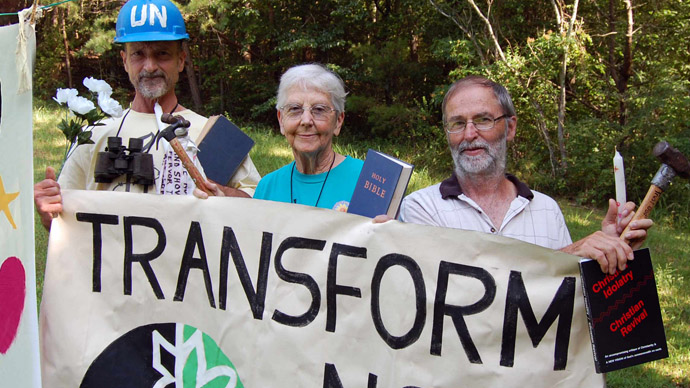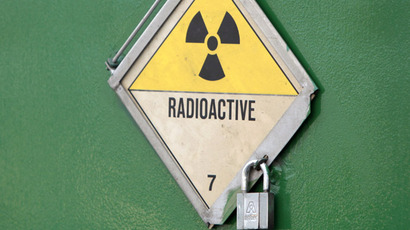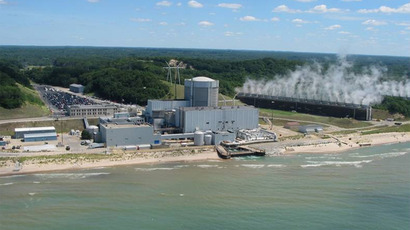83-year-old nun convicted of sabotage for breach of US atomic complex

Three activists, including an 83-year-old nun, who broke into a US nuclear weapons facility in Tennessee were convicted on Wednesday of interfering with national security.
In what The New York Times labeled the biggest security breach in the history of the atomic complex, the trio broke into the Y-12 National Security Complex on July 28, 2012 and defaced a uranium processing plant.
The Y-12 facility has been in operation since 1943 as part of the Manhattan Project, and today is responsible for both the production and maintenance of all uranium parts for the entire US nuclear weapons arsenal. Over the years, the facility has also been the target of nonviolent anti-nuclear protests.
Now, a jury in Tennessee has charged the three protesters with sabotaging the plant, with a second charge of damaging federal property.
Defense attorneys for the three activists - Sister Megan Rice,
57-year-old Greg Boertje-Obed and Michael Walli, 64 - maintained
that the prosecution had overreached.
"The shortcomings in security
at one of the most dangerous places on the planet have embarrassed
a lot of people," defense lawyer Francis Lloyd
said.
"You're looking at three
scapegoats behind me," he added
Defense attorneys also noted that, once the three refused to plead guilty to trespassing, which carries a maximum sentence of 10 years' imprisonment, the prosecution introduced the charge of sabotage, which carries a maximum prison term of twenty years. They believed the higher charge should have been dismissed.
According to the Associated Press, which provided details of the court proceedings, the three activists have no remorse for their actions, and were pleased to have reached one of the most secure areas of the facility.
Prosecutor Jeff Theodore noted that the trio’s fate could have
been far worse, as that area of the facility allowed guards to use
deadly force.
"They're lucky, and thank
goodness they're alive, because they went into the lethal
zone," said Theodore.
The three defendants spent two hours inside Y-12, during which time they hung banners, cut through security fences, strung crime-scene tape and sprayed “baby bottles full of human blood” on the exterior portion of the facility.
Boertje-Obed, who is a house painter from Duluth, Minnesota,
explained why they sprayed the blood.
"The reason for the baby bottles was to represent that the blood of children is spilled by these weapons," he said.
While inside the most secure portion of the facility, the three activists managed to hammer off what is described as a “small chunk” of the Highly Enriched Uranium Materials Facility.
During cross examination, Sister Rice stated that she wished she
had not waited so long to stage a protest within the
plant.
"My regret was I waited 70
years," she said."It is
manufacturing which can only cause death."
Prosecutors argued that the breach of security was serious, and
caused the plant to shut down for two weeks as security staff were
re-trained and defense contractors replaced.
Meanwhile, federal officials maintain that there was never any danger of the three activists reaching materials that could be detonated or used to construct an improvised bomb.














